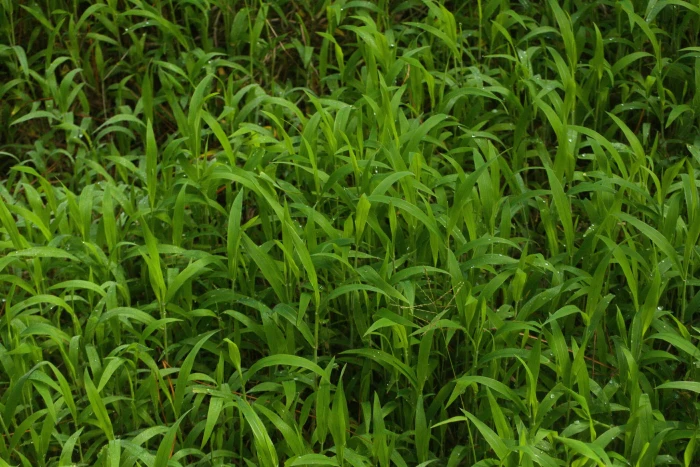East African Couchgrass
(Digitaria abyssinica)
East African Couchgrass (Digitaria abyssinica)
/
/

© Kevin Faccenda
CC BY 4.0
Image By:
© Kevin Faccenda
Recorded By:
Copyright:
CC BY 4.0
Copyright Notice:
Photo by: © Kevin Faccenda | License Type: CC BY 4.0 | License URL: http://creativecommons.org/licenses/by/4.0/ | Uploader: kevinfaccenda | Publisher: iNaturalist |

























Estimated Native Range
Climate Requirements
| • Precipitation | 35" - 42" |
| • High Temp. | 72°F - 89°F |
| • Low Temp. | 44°F - 61°F |
Summary
Digitaria abyssinica, commonly known as East African couchgrass, is a perennial grass that is native to a variety of habitats including savannas, open grasslands, and light woodlands across sub-Saharan Africa, Madagascar, Indian Ocean islands, the Arabian Peninsula, Sri Lanka, Malaysia, Vietnam, New Guinea, and Queensland, Australia. It has been introduced to Central America, northern South America, and Saint Helena. This species typically forms dense tufts and can reach heights of up to 1 meter. The grass has a fast growth rate and produces narrow, linear leaves that are green to blue-green in color. It flowers during the warm season, producing small, inconspicuous spikelets.
East African couchgrass is valued for its hardiness and ability to thrive in poor soils, making it useful for erosion control and as a forage grass in its native range. It is also used in traditional medicine in some cultures. In cultivation, it prefers full sun to partial shade and can tolerate a range of soil types, provided they are well-drained. It requires moderate watering and can be drought-tolerant once established. However, Digitaria abyssinica can be potentially invasive in some regions, outcompeting native vegetation and altering ecosystems. Gardeners should be cautious and consult local regulations before planting.CC BY-SA 4.0
East African couchgrass is valued for its hardiness and ability to thrive in poor soils, making it useful for erosion control and as a forage grass in its native range. It is also used in traditional medicine in some cultures. In cultivation, it prefers full sun to partial shade and can tolerate a range of soil types, provided they are well-drained. It requires moderate watering and can be drought-tolerant once established. However, Digitaria abyssinica can be potentially invasive in some regions, outcompeting native vegetation and altering ecosystems. Gardeners should be cautious and consult local regulations before planting.CC BY-SA 4.0
Plant Description
- Plant Type: Grass
- Height: 1.5-2.5 feet
- Width: 2-3 feet
- Growth Rate: Moderate
- Flower Color: N/A
- Flowering Season: Summer, Fall
- Leaf Retention: Deciduous
Growth Requirements
- Sun: Full Sun
- Water: Low
- Drainage: Fast, Medium, Slow
Common Uses
Erosion Control, Low Maintenance
Natural Habitat
Savannas, open grasslands, and light woodlands
Other Names
Common Names: African Couch Grass
Scientific Names: Digitaria abyssinica, Dichanthium scalarum, Digitaria abyssinica, Digitaria abyssinica var. micrantha, Digitaria abyssinica var. scalarum, Digitaria ciliaris, Digitaria effusa, Digitaria eichingeri, Digitaria hackelii
GBIF Accepted Name: Digitaria abyssinica